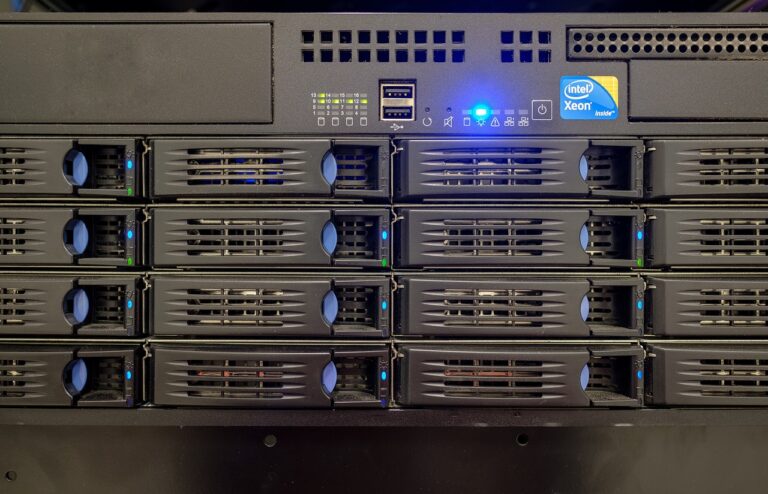Network Attached Storage (NAS) servers have become a vital pillar for businesses and individuals looking to centralize and protect their data. However, even these robust systems are not immune to data loss. In this article, we’ll explore the many potential causes of this issue and how you can prepare to deal with it.

Hardware failures: a constant threat
One of the most common causes of data loss on a NAS server is hardware failure. Hard drives, while proven and reliable, can experience unexpected failures. These failures can occur for a variety of reasons, ranging from natural wear and tear to manufacturing defects.
Hard drives in NAS servers like Synology NAS are subjected to enormous stress, including constant read-write cycles. Even with a Redundant Array of Independent Disks (RAID) devices in place, multiple drive failures can be catastrophic. RAID data, designed to provide fault tolerance, is not completely foolproof. For example, multiple drive failures in a RAID 5 or 6 array can result in total data loss.
Hardware security is therefore crucial. Using quality external drives, planning regular replacements and monitoring performance can greatly reduce the risk of hardware failure. In addition, specialized recovery services can sometimes repair or recover data even after a hardware failure. Langmeier Backup software is an example of a powerful solution for data backup and recovery in the event of a hardware disaster.
Human errors: an unpredictable variable
Even with the best equipment and protocols, human error remains a major cause of data loss. System administrators and users can inadvertently cause incidents with far-reaching consequences.
Mistakes can occur when setting up new NAS servers or during critical upgrades. Incorrect RAID settings, for example, can make all stored data inaccessible. In addition, accidental deletion of files or entire volumes is a reality that many professionals in the field have already experienced.
Implementing strict procedures, regular backups and specific training can reduce these risks. Data recovery software can also provide a safety net in the event of accidental deletion. However, the best prevention remains user awareness and the implementation of access and rights management policies.
Cyber attacks: a growing threat
Cyberattacks pose a growing threat to the security of data stored on NAS servers. Hackers know that businesses and even individuals store sensitive data on these devices, making them attractive targets.
Ransomware is a particular concern. This malware can encrypt all your data, making it inaccessible until a ransom is paid. In some cases, even after payment, data recovery is not guaranteed.
To thwart these threats, it is essential to maintain rigorous security. This includes firewalls, regular system updates, and antivirus software. In addition, solutions like Langmeier Backup allow you to store backup copies of data offline, reducing the potential impact of cyberattacks.
Natural disasters: force majeure
Although less common, natural disasters can also cause data loss on a NAS. Floods, fires, and earthquakes can quickly destroy entire servers, making data recovery extremely difficult.
Businesses should have business continuity plans that include offsite backups. It’s also wise to invest in disaster-resistant infrastructure, such as servers in secure data centers. In the event of a disaster, specialized recovery services can often recover lost data, but this is an expensive and complex process.
Data loss on a NAS server can occur for a variety of reasons: hardware failure, human error, cyberattacks, or even natural disasters. Each of these causes requires a well-thought-out data prevention and recovery strategy.
To minimize risk, it is crucial to maintain rigorous IT security, schedule regular backups, and educate your teams. Using tools like Langmeier Backup and working with specialized recovery services can make all the difference in the event of a crisis.
Ultimately, prevention and preparation are your most reliable allies against losing your data stored on a NAS. Be prepared, and informed, and protect what is essential to your business.


















